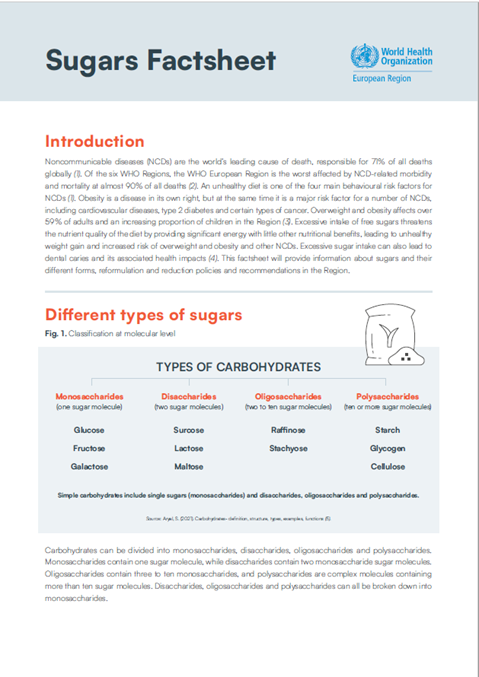Sugars factsheet
16 September 2022
| Publication

Overview
Noncommunicable diseases (NCDs) are the world’s leading cause of death, responsible for 71% of all deaths globally (1). Of the six WHO Regions, the WHO European Region is the worst affected by NCD-related morbidity and mortality at almost 90% of all deaths (2). An unhealthy diet is one of the four main behavioural risk factors for NCDs (1). Obesity is a disease in its own right, but at the same time it is a major risk factor for a number of NCDs, including cardiovascular diseases, type 2 diabetes and certain types of cancer. Overweight and obesity affects over 59% of adults and an increasing proportion of children in the Region (3). Excessive intake of free sugars threatens the nutrient quality of the diet by providing significant energy with little other nutritional benefits, leading to unhealthy weight gain and increased risk of overweight and obesity and other NCDs. Excessive sugar intake can also lead to dental caries and its associated health impacts (4). This factsheet will provide information about sugars and their different forms, reformulation and reduction policies and recommendations in the Region.WHO Team
Noncommunicable Diseases Surveillance (SRV)
Copyright
WHO




